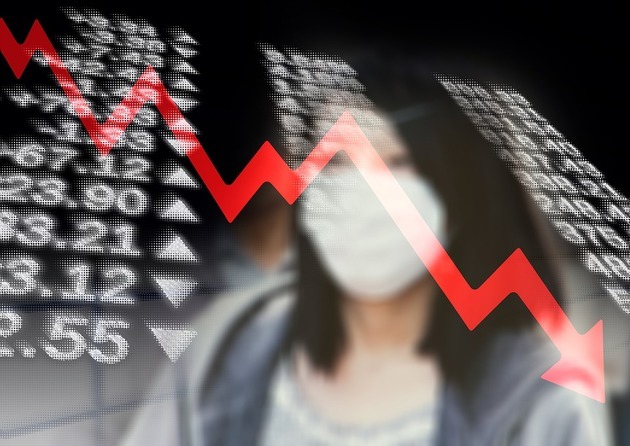The World Bank has cut its forecasts for China's economic growth this year and next, as the world's second largest economy faces mounting headwinds from the new Omicron variant to a severe property sector downturn, CNN writes.
The bank now expects China's GDP to expand 8% in 2021 compared with a year ago — that's lower than its previous forecasts. (In October, the World Bank expected China to grow 8.1% this year. In June, it projected a growth of 8.5%.) It also cut its 2022 forecast from 5.4% to 5.1%, which would mark the second slowest pace of growth for China since 1990 — when the country's economy increased 3.9% following international sanctions related to the 1989 Tiananmen Square massacre. China's economy grew 2.2% in 2020.
"Downside risks to China's economic outlook have increased," the World Bank said Wednesday in its latest report on China's economy. Renewed domestic Covid outbreaks, including of the Omicron variant, could lead to more "broad-based and longer-lasting" restrictions and cause further disruptions to economic activity, it said.
In addition, "a severe and prolonged downturn" in the highly leveraged property sector might have significant reverberations across the economy, it added. China was the only major economy to record growth in 2020, but this year it has been dealing with a lot of threats to its expansion, including pandemic-related curbs, an energy crunch, and an unprecedented crackdown on private enterprises.
A year-long, sweeping regulatory crackdown on tech, education, and entertainment has hammered stocks. It also triggered huge layoffs among many companies, pressuring the job sector even as it tries to recover from the pandemic.
Further regulations on property firms that began last year have piled on the pain for major developers who were already carrying too much debt. Real estate — which accounts for nearly a third of China's GDP — is now in a deepening slump, with big players on the brink of collapse.
Increasing economic headaches have made Beijing reconsider its approach to policy. During a key economic meeting earlier this month, Chinese President Xi Jinping and other top leaders marked "stability" as their top priority for 2022. That's a huge pivot from last year's meeting, when "curbing the disorderly expansion of capital" ruled the day.
Authorities have since then stepped up efforts to boost the economy — the People's Bank of China on Monday cut its main interest rate for the first time in 20 months, hoping to reduce borrowing costs for households and firms and in turn encourage consumer spending and investment.
Last week, the central bank also lowered the reserve requirement ratio for most banks by half a percentage point. That move is expected to unleash some 1.2 trillion yuan ($188 billion) for business and household loans.
Although Chinese authorities should stand ready to ease fiscal policy and provide liquidity to stem risks of contagion from distressed developers, the World Bank argues that the traditional playbook of boosting growth through infrastructure and real estate investment has "run its course."
"To achieve quality growth over the medium-term, China will need to rebalance its economy across several dimensions," it said. That includes efforts to make China a consumption and services-driven economy, let markets and the private sector — rather than state leadership and regulation — play a greater role, and transitioning from a high to a low-carbon economy.
"Addressing distortions in factor markets and further opening up of the protected services sector would not only support the shift to more private sector-led growth but also encourage rebalancing towards higher value services jobs," said Ibrahim Chowdhury, the World Bank's acting lead economist for China, in the statement.
To support the rebalancing, the bank suggested China conduct fiscal reforms to create a more progressive tax system and boost social safety nets, encourage wider use of carbon pricing, and promote the development of green financing instruments.






